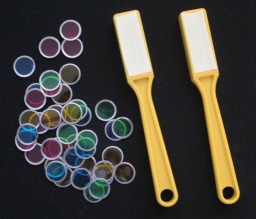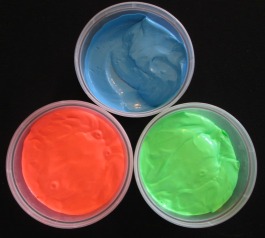- Home
- Teaching Strategies
- Motivating children with autism
Motivating Children With Autism: Proven Ideas for Success
Motivating children with autism can be a huge challenge for parents and teachers, but it doesn't have to be. In this article, I will give you some proven ideas that really work for many children.
Think about what motivates you to do or to learn something. Is there not something in it for you? Whether it's rewarding yourself with a bit of "me time" after cleaning the house, or the simple enjoyment of doing what you love to do, such as a favorite hobby--there's a reward that's motivating you to do the task at hand.
 Image by Arek Socha from Pixabay
Image by Arek Socha from PixabayI’m sure you already know how your own motivation increases when you know
you’ll be rewarded. But if there’s any doubt in your mind about the
effectiveness of rewards, consider how many workers at a company would be left if the boss decided he could no longer pay them for their
work!
Our kids need an incentive to work just as much as, if not more than we do. There has to be something in it for them, or they won't want to participate.
With that said, you might be wondering,
What Kinds of Rewards Should I Use?
Some children would be motivated to work hard in exchange for some time listening to their favorite songs while others might prefer a lollipop. Still others may be happy with a simple “high-five.”
The important principle to remember is this: to use a motivator that will truly motivate! In other words, you want to make sure the reward is rewarding enough to make your child want to do the thing you want them to do.
Because what motivates one child might not be so motivating for another child. Some kids will work like crazy for a lollipop while other children might prefer time on a swing.
It's a matter of knowing what children like/love, and using that to make them want to do what you are asking them to do.
If you aren't sure what will work for your child, trial and error is your friend. Try different rewards to see what they will respond to the most.
Here are some ideas/examples of rewards I have tried.
High Fives
You have to admit, high-fives are real easy on the budget. (You can’t beat free!) I’ve seen more than one professional use them for motivating children with autism, and they have worked well for my son.
It's nice to find a reinforcer that's motivating that you don't have to buy or keep a supply of. High fives are also great in a pinch when no other reward is available, as long as it's motivating for your child.
If you need a non-physical motivator like this and your child isn't into high fives, simple praise usually works for just about anyone. More on this later.
Lollipops
These have been quite effective for my son, especially as he was being potty trained. I like the Yummy Earth brand of organic lollipops. It has no artificial food colorings or artificial flavors. All flavors and colors are derived from real food extracts. And I’ve even seen adults who can’t stop eating them, they’re so good.
I get these at my local Whole Foods Market, but you can also get them online.
Chipper Chips
 Chipper Chips with magnetic wands
Chipper Chips with magnetic wandsChipper chips are colored tokens with metal rings around the edges. You can buy them with one or two magnetic wands.
The way I've used these is to reward him with a chip every time he gets a correct answer. Then he can place a chip on the answer, whether we're using a worksheet or cards or some other medium.
My son loves these. His speech therapist used them a lot for his lessons as he worked his way through the Moving Across Syllables program. He got to place a chip on each word or group of words that he said correctly. When he finished the page, he had to ask for the wand. (Note the extra speech practice.) Then he could use the wand to pick up all those Chipper chips. Fun!
Putty
 Therapy Putty: a favorite with kids and great for improving fine motor skills
Therapy Putty: a favorite with kids and great for improving fine motor skillsMy son loves to work with putty. We use the kind that the hospitals and therapists use.
The brand I like is called Theraputty, and it’s conveniently available on Amazon.
Our therapists have used putty as a reward for doing a certain amount of work. For example our speech therapist might reward him with 5 minutes of play time with the putty after he has finished his therapy session. Or she might give him putty time after he has finished one task.
Praise

I would suggest using praise often for motivating children with autism, even alongside other rewards. We all need to know when we’ve done a good job, and our children are no exception.
Of course, when I say “often,” I mean until they’ve learned the skill really well and it’s part of their normal behavior.
I also would suggest giving specific praise. For example, after a writing lesson you could say, “Good writing those letters,” or “I like the way you traced those letters so carefully. They look great!”
Why specific praise? Because there may be occasions when saying “Good job” isn’t enough. Some children may not understand exactly what they did right.
So I like to say things like, “I’m so proud of you for making it to the bathroom. That shows how big you are!”
Other Ideas for Motivating Children With Autism
- Nuts, including cashews, filberts, pecans, etc.
- Popcorn
- Organic candy
- Any favorite snack
- A favorite drink, such as juice or a milkshake (dairy-free, if sensitive to milk)
- Time with a favorite toy
- Watching a favorite video
- Listening to the radio or to a favorite song(s)
- Time on an iPad
- Time on a swing (this is good for sensorimotor issues as well)
These are just a few examples to get you started. Of course, you’ll need to rule out foods that your child is sensitive or allergic to.
The point is to find something they love that you can give them over and over again as a reward.
Need more ideas for motivating children with autism? Earlywood Educational Services is a goldmine of ideas for rewards. Their collection of resources includes token reinforcement systems, incentive/behavior systems, and reinforcement/reward suggestions.
Success is Motivating, Too
Starting a system of rewards can help a lot with motivation. And once they see how success feels, they may even ask for lesson time!
For more information on motivating children with autism, see this article on schedules of reinforcement.




New! Comments
Have your say about what you just read! Leave me a comment in the box below.